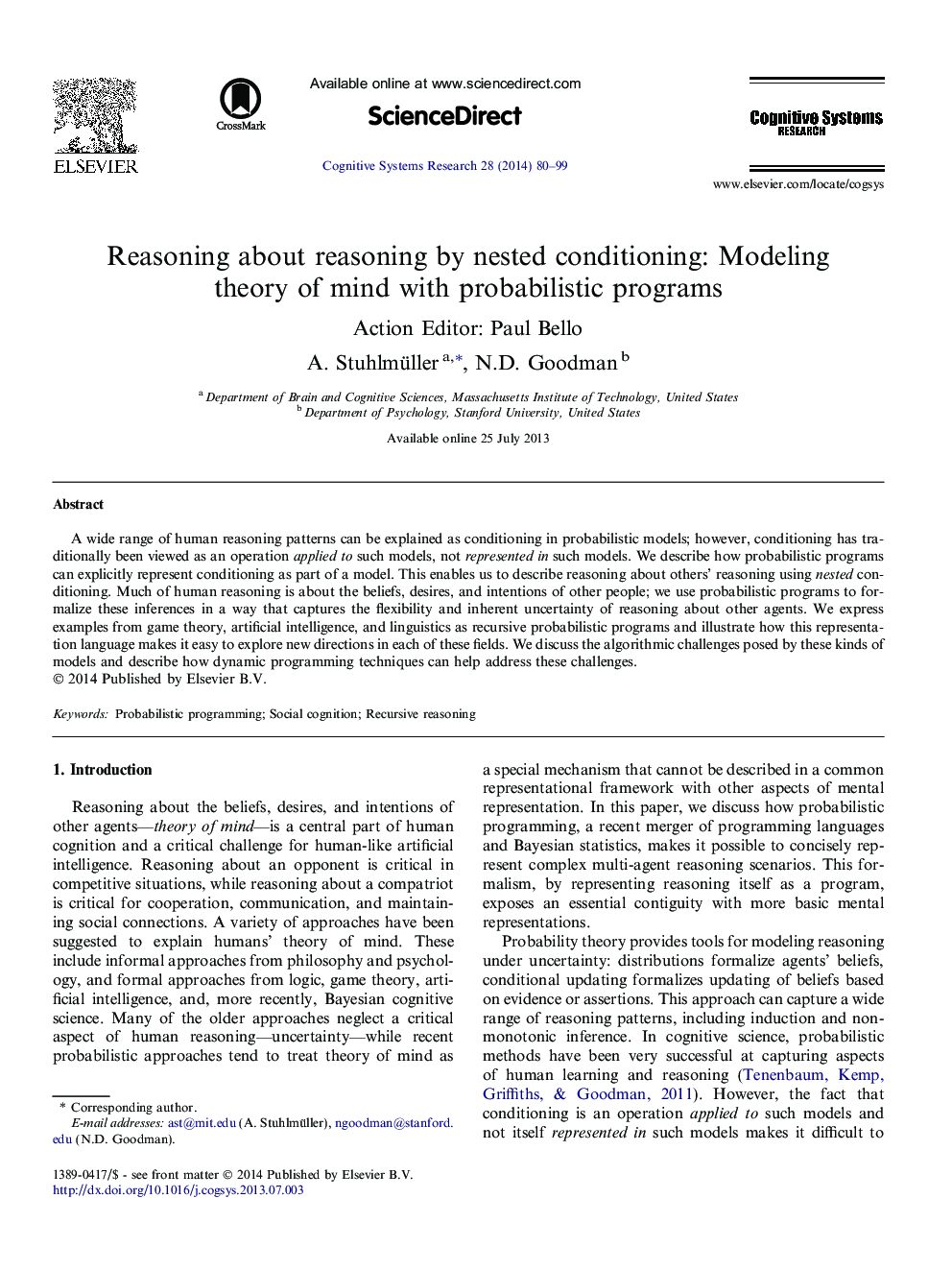| Article ID | Journal | Published Year | Pages | File Type |
|---|---|---|---|---|
| 378382 | Cognitive Systems Research | 2014 | 20 Pages |
A wide range of human reasoning patterns can be explained as conditioning in probabilistic models; however, conditioning has traditionally been viewed as an operation applied to such models, not represented in such models. We describe how probabilistic programs can explicitly represent conditioning as part of a model. This enables us to describe reasoning about others’ reasoning using nested conditioning. Much of human reasoning is about the beliefs, desires, and intentions of other people; we use probabilistic programs to formalize these inferences in a way that captures the flexibility and inherent uncertainty of reasoning about other agents. We express examples from game theory, artificial intelligence, and linguistics as recursive probabilistic programs and illustrate how this representation language makes it easy to explore new directions in each of these fields. We discuss the algorithmic challenges posed by these kinds of models and describe how dynamic programming techniques can help address these challenges.
